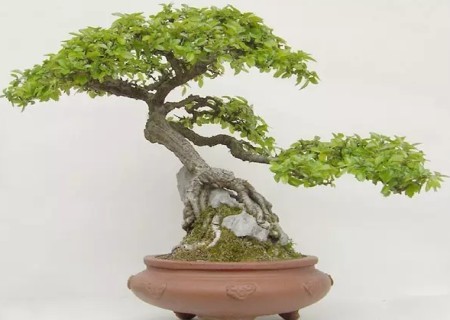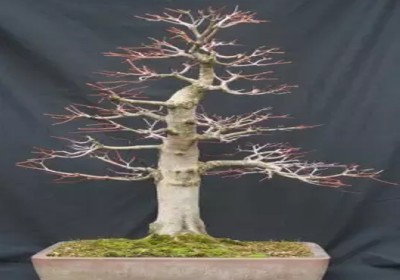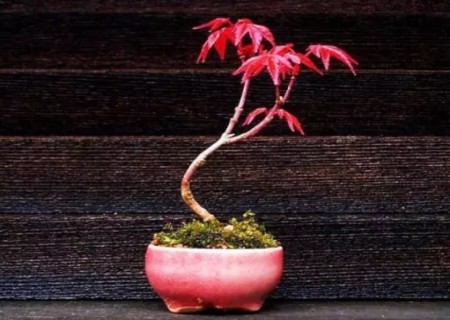How to raise the bonsai of hammer elm
Many pot friends buy elm bonsai, but do not know how to raise elm bonsai, although elm bonsai is easy to raise, but its survival rate is not high, especially in the balcony maintenance, some flower friends according to their years of experience, summed up some key points of maintenance elm bonsai, hoping to help flower friends.

1, pile selection should be strict, pile blank must be fresh, rotten, no roots do not, try to choose fine, do not pursue more, to ensure that the selected pile blank can survive.
2. The pre-planting treatment of Chinese elm is very important, especially for its wounds and sections, because its wounds are easy to run in large quantities when exposed to water. Therefore, after the pile blank is trimmed, the cross section and its wound must be trimmed smoothly. For large cross sections, it is best to repair the skin and xylem into a 45-degree inclined plane. This can prevent bacterial infection, but also conducive to wound healing as soon as possible, early rooting.
3, wound after treatment, can not immediately on the basin, to put it in the shade for a few hours, let the wound naturally collect water, form a layer of protective film, which can greatly reduce the occurrence of pile blank on the basin after the juice, the biggest disadvantage of all elm varieties is easy to flow juice run slurry, if elm pile bad before planting and after planting, can not effectively overcome this defect, then it is difficult to ensure the survival of pile bad.
4. Some elm piles have many holes on them, many of which are filled with fallen leaves and weeds, which must be thoroughly removed. The reason is that more or less of these sundries contain ant colonies or eggs. If they are not cleaned before they are put into the basin, the weather will warm in the future, and the ant colonies and eggs in the cave will increase in activity and reproduction. It is difficult to eradicate them completely, and the piles may eventually be eaten and killed.
Elm is an ordinary tree, all the mountains and plains have its shadow. Elm tree posture elegant, leaves small color cui, elegant bold, full of vitality, clear layers, density has sent, intertwined roots, hanging roots exposed claws. No matter how big or small the pile head is, Athens is magnificent. Especially the ancient pile head is more colorful holes, vigorous and simple, Qiu Qu strange, senile dragon bell. The branches are elegant and tall, with a sense of spring.
1. Soil
The soil is best made of yellow sand, pine needle soil and loess in a ratio of 4:3:3. The bottom of the pot is padded with several layers of tiles and a layer of coarse sand. After the soil is well prepared, shake it a few times first, and then compact it down along the edge of the pot to prevent the formation of voids under the pile root and affect the root.
2. Watering
Elm love wet, watering should be sufficient, summer temperature high light intensity, morning and evening watering once, but do not make the basin water. Autumn watering can be less, winter such as buried pot soil, can not be watered. After pouring through the fixed root water, cover it with a plastic bag and put it in a relatively fixed place. Do not move it frequently, so as not to loose the root of the pile and break the root bud. Try to control watering, spray water on branches, and keep the pot soil dry.
3. Fertilization
Apply manure or cake fertilizer once in winter as base fertilizer, and apply thin organic fertilizer once every half month from April to October (except for plum rain season) to maintain normal growth nutrient needs. Nitrogen and potash are the main fertilizers.
4, pruning
Ulmus leaves grow fast, in order to maintain the shape of bonsai should be often pruned, generally in the bud branch elongation to 5~6 cm, only 2~3 leaves remain, the rest are cut off. In order to control growth, buds can also be picked at any time.
5. Turn over the basin
Every 2~3 years, the best time is before germination in spring, autumn can also be done. When turning pots, about 1/2 of the old soil can be removed, and part of the old roots can be cut off, and fertile and loose culture soil can be used.
6, pest control
Elm pests more common elm leaf insects, scale insects, longicorn, thorn moth and moth, etc. Can spray 80% dichlorvos 1500 times liquid control; longicorn harm trunk, available stone sulfur mixture plug insect hole.
7, placed
Elm should be placed in sunny, airy places. Summer does not need shade, winter can be placed outdoors, in order to prevent the basin soil from freezing, can be buried in the soil.
The author thinks that elm is favored by people because it is easy to get materials, fast to grow, extensive to manage, ornamental with or without leaves, and inexpensive. However, whether it can be made and maintained well, the author believes that attention should be paid to solving the following six problems:
1. Solve the problem of "running slurry"
The sparrow plum is afraid of "shrinking branches", and the elm is afraid of "running pulp". The solution of "running slurry" is generally to adopt air-drying method, plant ash method, mud coating method, latex coating method, hot drop beeswax method, erythromycin ointment coating method, etc., and pay attention not to pour "root fixing water" immediately when planting, wait for 2-3 days and then water. As long as we can put an end to "running pulp", there is no threat to the survival of elm, we can get twice the result with half the effort.
2. Solve the problem of "branches are not in place"
"The elm is of high grade, but its branches are not good enough to hinder viewing." Although this problem is not fatal, it is somewhat disappointing and affects viewing. For this reason, the author has repeatedly imitated the selection of "hammering to promote growth method", but it is difficult to achieve results, had to hang the nearby branches, take the bend to make up for the missing parts.
3. Solve the problem of "undressing and changing brocade"
Re-prune elm, remove all leaves, and promote its best viewing period again. There are three ways to remove leaves: one is to cut off leaves one by one with flower scissors; the other is to put the plants in a corner of the hall, causing the leaves to fall off naturally; the third is to "withhold water" for 5-7 days, causing short-term interruption of water supply and forcing the leaves to fall off.
Time: 2019-05-31 Click:
- Prev

How to replace maple potted plants
April is a good time to replace bonsai. Potted trees grow in limited pot soil. After a certain number of years, the fertility is exhausted, the soil layer is hardened, the roots are densely packed, and they are squeezed each other. It is difficult for new roots to grow. It is best to replace them with larger pots and fill them with new soil (changing soil without changing pots is also possible) to ensure the normal growth of potted trees.
- Next

How to raise red maple bonsai
Red maple is a famous scenic tree in China, which is whirling and beautiful. It is not only suitable for solitary planting or group planting between mountains and rocks, green pines and cypresses, but also for family potted plants or bonsai ornamental, and can also be cut into vases as cut flowers. What are the techniques for making red maple bonsai? what are the maintenance methods for red maple bonsai?
Related
- Fuxing push coffee new agricultural production and marketing class: lack of small-scale processing plants
- Jujube rice field leisure farm deep ploughing Yilan for five years to create a space for organic food and play
- Nongyu Farm-A trial of organic papaya for brave women with advanced technology
- Four points for attention in the prevention and control of diseases and insect pests of edible fungi
- How to add nutrient solution to Edible Fungi
- Is there any good way to control edible fungus mites?
- Open Inoculation Technology of Edible Fungi
- Is there any clever way to use fertilizer for edible fungus in winter?
- What agents are used to kill the pathogens of edible fungi in the mushroom shed?
- Rapid drying of Edible Fungi

